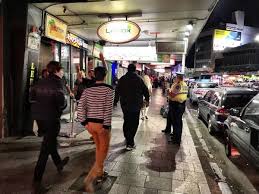
There was only only party that had a significant correlation with living in a mortgaged house. This was the negative correlation of -0.25 between this and voting Green in 2014.
None of the correlations between living in a mortgaged house and voting for any of the other parties were significant. These ranged from the ACT Party’s -0.09 to the Aotearoa Legalise Cannabis Party’s 0.14.
Living in a mortgaged house also had a perfect lack of correlation with turnout rate in 2014 – a nice, even 0.00.
The reason for this was the very strong positive correlation being living in a freehold house and turnout rate in 2014, which was 0.72, and the corresponding very strong negative correlation between living in a rented house and turnout rate in 2014, which was -0.66.
Probably the single most fundamental pattern described in this book is the simple and obvious one that disenfranchisement from society – by any measure – closely correlates with disenfranchisement from the voting booth.
Because someone living in a house rent-free is almost always doing better than someone who must pay that house’s owner about a third of their income or get thrown out into the street, it’s not surprising that the tenure of a person’s dwelling is a strong predictor of their voting patterns.
Living in a freehold house had a correlation of 0.67 with voting National in 2014, as opposed to living in a rented house, which had a correlation of -0.76.
This was the mirror opposite to Labour, for whom living in a freehold house had a correlation of -0.64 with voting for them in 2014, and for whom living in a rented house had a correlation of 0.67 with voting for them in 2014.
Probably more than any other single section in this book, the correlations here describe how New Zealand society essentially works: anyone capable of enforcing a claim to land ownership lives for free and does not want to change this arrangement, while anyone not capable of enforcing a claim to land ownership must pay money in the form of rent to those who can, and these people generally do want to change the arrangement.
This is essentially how politics started, and the description of it above is true of almost all times and of almost all places.
The correlations between voting for the other parties in 2014 and tenure of dwelling generally reflects the pattern of disenfranchisement described above. Living in a freehold house was also positively correlated with voting for the Conservatives (0.63), but not for any other party besides National.
The correlation between living in a freehold house and voting Green was a not significant -0.05, which probably reflects that many Green voters, even if highly educated and making a good income, are not old enough to have saved the money for a house just yet.
This age factor would also explain why there was a positive correlation between voting Green in 2014 and living in a rented house – this was 0.28. Many Green voters are wealthy enough to get a mortgage but are too young to have settled down yet and so still live in flats.
Predictably, given the general degree of Maori disenfranchisement, voting for most of the parties with high levels of Maori support had significant positive correlations with living in a rented house. Living in a rented house had a correlation of 0.40 with voting for the Aotearoa Legalise Cannabis Party, one of 0.53 with voting Maori Party and 0.54 with voting Internet MANA.
The exception to the rule was New Zealand First. Voting for them in 2014 had a correlation of 0.06 with living in a rented house. Neither were there significant correlations between voting New Zealand First in 2014 and living in a freehold house (-0.05) or living in a mortgaged house (0.12).
This probably reflects the degree to which New Zealand First, like nationalist socialist parties everywhere, represents a very broad spectrum of society when it comes to class.
*
This article is an excerpt from Understanding New Zealand, by Dan McGlashan, published by VJM Publishing in the winter of 2017.



